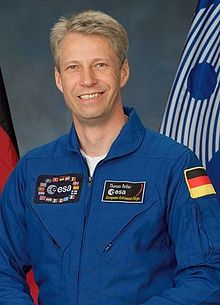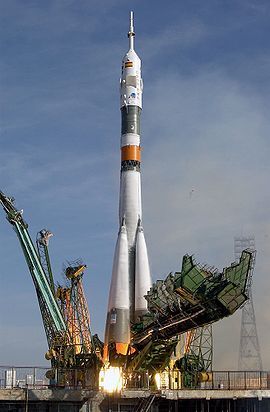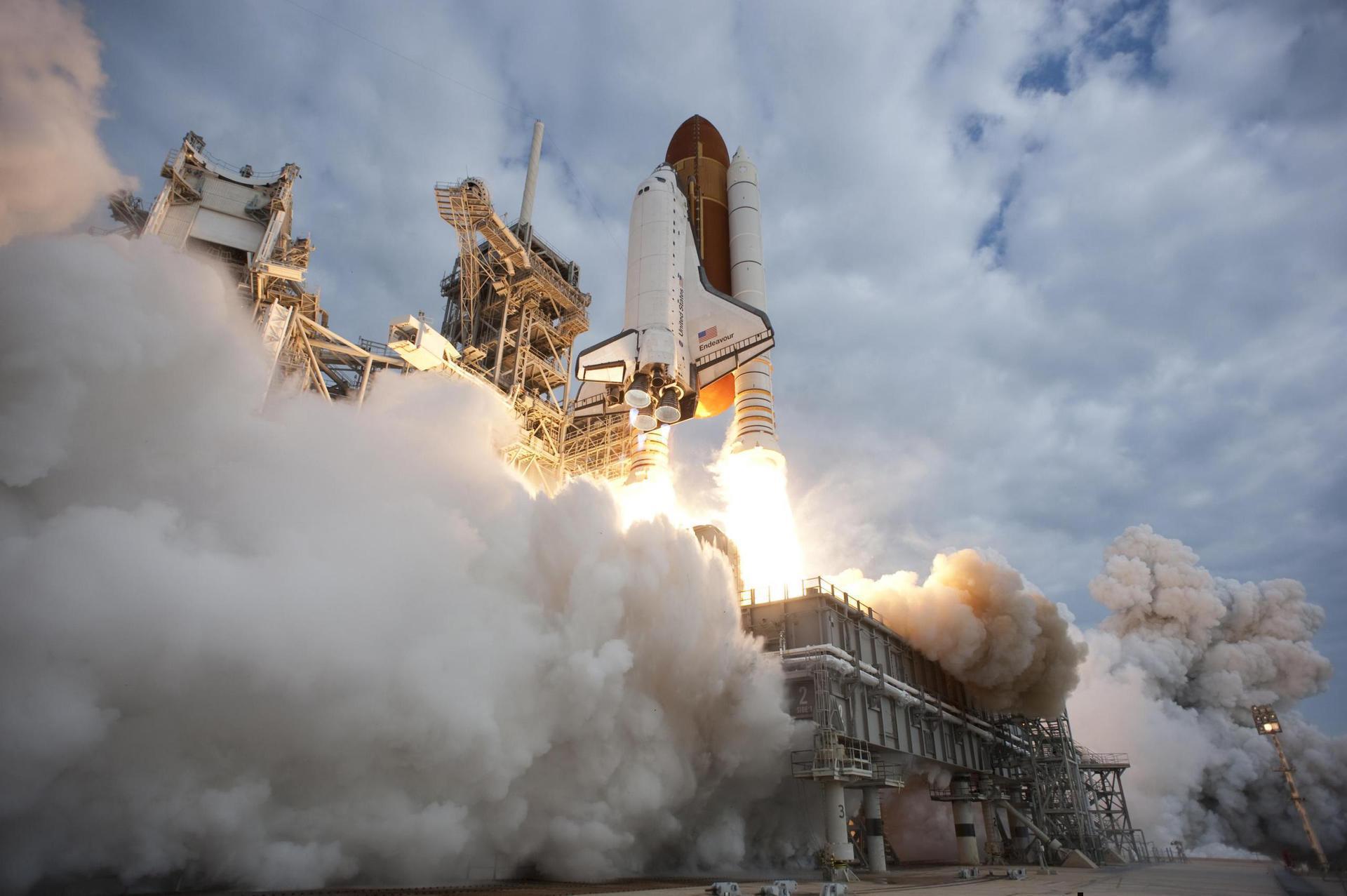Thomas Reiter
German - (ESA)
Retired
Date of Birth: May 23, 1958
Age: 67
Thomas Arthur Reiter (born 23 May 1958 in Frankfurt, West Germany) is a retired European astronaut and is a Brigadier General in the German Air Force currently working as ESA Interagency Coordinator and Advisor to the Director General at the European Space Agency (ESA). He was one of the top 25 astronauts in terms of total time in space. With his wife and two sons he lives near Oldenburg in Lower Saxony.
Soyuz-U2 | Soyuz TM-22
Soviet Space Program | RussiaBaikonur Cosmodrome, Republic of Kazakhstan
Sept. 3, 1995, 9 a.m.
Status: Success
Mission:
Soyuz TM-22 was the 23rd mission and the 20th long-duration expedition to Mir space station. It was also a part of the US/Russian Shuttle-Mir Program. The mission began on September 3, 1995, 09:00:23 UTC, launching Commander Yuri Gidzenko, Flight Engineer Sergei Avdeyev and Research Cosmonaut Thomas Reiter into orbit. They docked with Mir two days later. During their stay there, cosmonauts performed several EVAs and various scientific experiments. Station crew was visited by several Progress resupply spacecrafts, STS-74, and welcomed aboard Soyuz TM-23 with the next expedition crew. The mission concluded with a safe landing back on Earth on February 29, 1996, 10:42:08 UTC.
Low Earth OrbitSpace Shuttle Discovery / OV-103 | STS-121
National Aeronautics and Space Administration | United States of AmericaKennedy Space Center, FL, USA
July 4, 2006, 6:37 p.m.
Status: Success
Mission:
STS-121 was a 2006 NASA Space Shuttle mission to the International Space Station (ISS) flown by Space Shuttle Discovery. The main purposes of the mission were to test new safety and repair techniques introduced following the Columbia disaster of February 2003 as well as to deliver supplies, equipment and European Space Agency (ESA) astronaut Thomas Reiter from Germany to the ISS.
Low Earth OrbitSpace Shuttle Discovery / OV-103 | STS-116
National Aeronautics and Space Administration | United States of AmericaKennedy Space Center, FL, USA
Dec. 10, 2006, 1:47 a.m.
Status: Success
Mission:
STS-116 was a Space Shuttle mission to the International Space Station (ISS) flown by Space Shuttle Discovery. Discovery lifted off on 9 December 2006 at 20:47:35 EST. A previous launch attempt on 7 December had been canceled due to cloud cover. It was the first night launch of a space shuttle since STS-113 in November 2002. The mission is also referred to as ISS-12A.1 by the ISS program. The main goals of the mission were delivery and attachment of the International Space Station's P5 truss segment, a major rewiring of the station's power system, and exchange of ISS Expedition 14 personnel.
Low Earth OrbitThe European Space Agency is an intergovernmental organisation of 22 member states. Established in 1975 and headquartered in Paris, France, ESA has a worldwide staff of about 2,000 employees. ESA's space flight programme includes human spaceflight (mainly through participation in the International Space Station program); the launch and operation of unmanned exploration missions to other planets and the Moon; Earth observation, science and telecommunication; designing launch vehicles; and maintaining a major spaceport, the Guiana Space Centre at Kourou, French Guiana.
Falcon 9
Starlink Group 10-41
Space Launch Complex 40 - Cape Canaveral SFS, FL, USAA batch of 29 satellites for the Starlink mega-constellation - SpaceX's project for space-based Internet communication system.
Falcon 9
Starlink Group 17-23
Space Launch Complex 4E - Vandenberg SFB, CA, USAA batch of 25 satellites for the Starlink mega-constellation - SpaceX's project for space-based Internet communication system.
Electron
That's Not A Knife (DART AE)
Rocket Lab Launch Complex 2 (Launch Area 0 C) - Wallops Flight Facility, Virginia, USAPayload is a scramjet-powered hypersonic vehicle developed by by Australian company Hypersonix.
Falcon 9
Starlink Group 6-108
Space Launch Complex 40 - Cape Canaveral SFS, FL, USAA batch of 29 satellites for the Starlink mega-constellation - SpaceX's project for space-based Internet communication system.
Falcon 9
Starlink Group 17-26
Space Launch Complex 4E - Vandenberg SFB, CA, USAA batch of 25 satellites for the Starlink mega-constellation - SpaceX's project for space-based Internet communication system.




